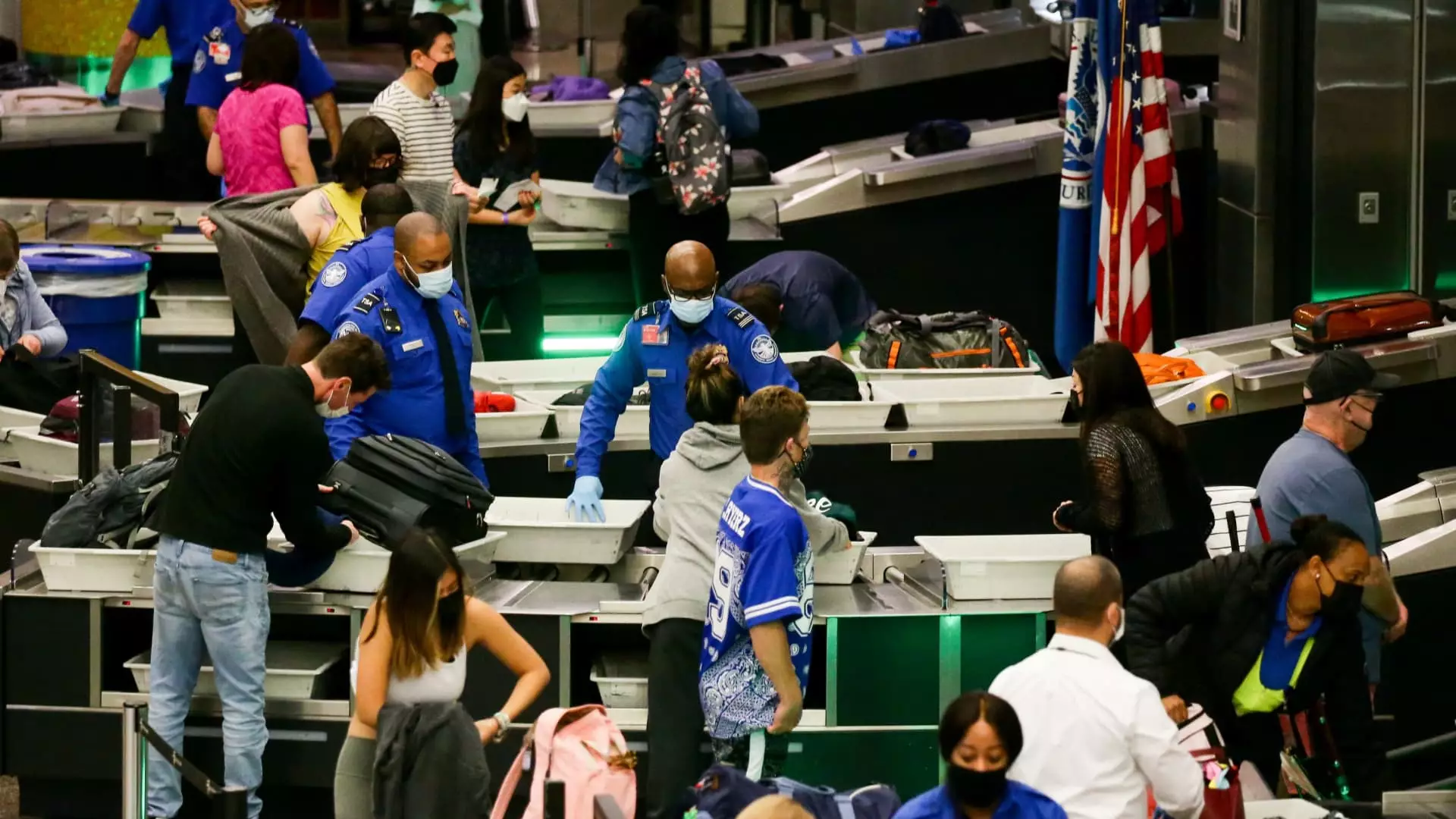In a striking move that reflects ongoing tensions between labor rights and federal authority, the American Federation of Government Employees (AFGE) has filed a lawsuit in Seattle against the Trump administration. This lawsuit seeks to prevent the Department of Homeland Security (DHS) from dismantling collective bargaining rights for nearly 50,000 Transportation Security Administration (TSA) officers who play a critical role at airports and other transportation hubs across the United States. At the heart of this issue lies not only the immediate employment rights of these officers but also a disturbing pattern of retaliation against organized labor.
This lawsuit isn’t merely a contractual dispute; it is an intersection of labor rights and political power dynamics. The AFGE accuses the DHS of retaliatory actions designed to silence union efforts that challenge the administration’s broader policies. This notion of retaliation indicates a refusal to engage with dissenting voices, a trend that undermines the democratic principles that labor unions embody. The following arguments in favor of protecting collective bargaining are crucial, as they emphasize not just the rights of unions, but also the fundamental rights of workers.
Retaliation against Unions: A Political Strategy?
The AFGE’s legal action springs from the claim that the Trump administration’s recent actions are emblematic of a systematic attempt to stifle union powers across the board. The lawsuit highlights a specific order that suspends the bargaining agreement, enacted just last year, targeting TSA officers. At a time when collective voices are already weakened, this aggressive maneuver represents not only a loss of job protections but also a direct affront to free speech and the right to organize.
Interestingly, this tactic mirrors past behaviors witnessed in various political studies: using power to suppress dissent often results in heightened resentment and mobilization amongst affected groups. The TSA officers’ ability to bargain resulted in real improvements in working conditions—like enhanced shift options—showing how union representation leads to better outcomes for not just the workforce, but ultimately, the passengers they serve. By canceling this agreement, the administration appears to be strategically undermining the officers’ morale and bargaining power, an alarming precedent for labor rights across the nation.
Historical Context: A Shift in Priorities
The precarious status of TSA officers has a long history, tracing back to the Obama administration when they were first granted limited bargaining rights, which were expanded under Biden. The stark contrast between these administrations and Trump’s active measures to curb union power puts forth an alarming question: what is the administration’s endgame?
In fact, critics of the current administration may interpret this development as indicative of a broader disdain for labor rights. The DHS’s Secretary Kristi Noem has taken a particularly hardline stance, arguing that previous directives benefited the AFGE over TSA officers. However, this sentiment fails to acknowledge the nature of labor unions, which exist precisely to advocate for worker rights. The perception of unions as self-serving entities only highlights a fundamental misunderstanding of their role in advocating for fair labor practices.
The Collective Voice of Workers at Stake
Moreover, the collaboration of other unions—representing flight attendants and airline employees—joining AFGE in this lawsuit underscores a growing realization that collective action is vital during these precarious times. This legal effort serves not only to protect TSA workers but also emphasizes the intrinsic value of organized labor in maintaining a just workplace where voices can be heard without retaliation.
As the lawsuit proceeds, the implications extend far beyond the affected 50,000 TSA officers. If allowed to proceed with ending collective bargaining agreements, it could set a dangerous precedent that empowers future administrations to pursue similar strategies against labor unions without accountability.
The lawsuit raises an essential question for center-wing liberal activists and politicians: how can we protect the rights of workers in an increasingly hostile political climate? The AFGE’s continuing fight represents an opportunity for a reinvigorated labor movement to push back against oppressive tactics while safeguarding essential services. As history demonstrates, those who stand against organized labor often do so at their peril, given the stakes involved in workers’ rights and societal equity.
Navigating these turbulent waters requires a committed and vocal opposition to policies that prioritize corporate over worker rights. The outcome of this case will undoubtedly send ripples far beyond the TSA, encapsulating a broader struggle for equality in the workplace. In this contest, we must fervently advocate for the rights of these officers and the future of organized labor itself.

